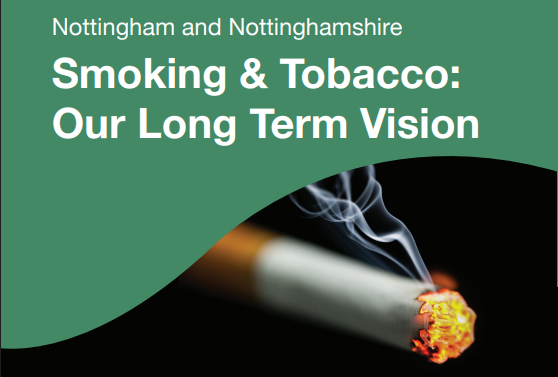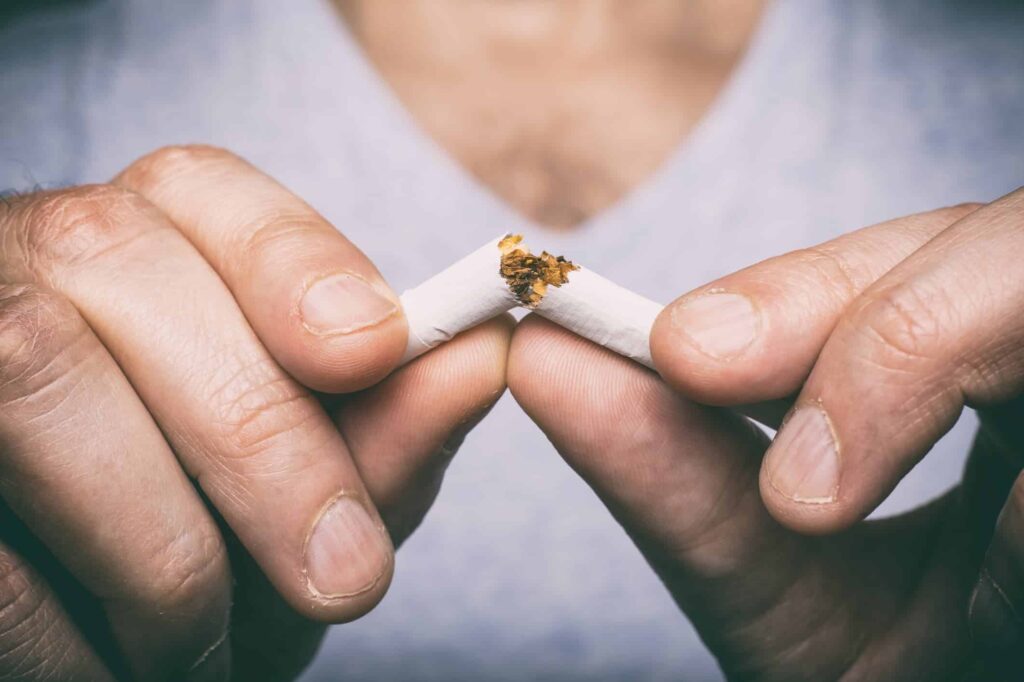In a bid to reduce smoking in the city, the county and the surrounding areas, Nottingham and Nottinghamshire Smoking and Tobacco Control Alliance has launched a smoking and tobacco and control vision document and delivery plan, which sets out a collective ambition to see smoking among adults in Nottingham and Nottinghamshire reduced to 5% or lower by 2035.
The alliance aims to bring together partner organisations including Nottingham City Council and Nottinghamshire County Council, to work towards eliminating smoking and tobacco-related harm, creating a smoke-free generation for Nottingham and Nottinghamshire by 2040.
The publication of the vision document coincides with World No Tobacco Day, which falls on May 31st, 2023, a campaign organised by the World Health Organisers to educate people on the dangers of using tobacco.
A Nottingham local anti-smoking charity organisation, Zero-Smoking executive director, Reinhardt McWilliams in an interview with Mojatu Online says smoking is dangeous especially the youth.
Says McWilliams: “We are sensitising all the youth about the dangers of smoking and we are reaching out to parents to help us help their children to stop smoking or vaping because it is dangerous and it poses a great health hazard to the future generation.”
This includes the impact tobacco has on health and wellbeing, from its role in various cancers, to respiratory diseases, heart attacks and strokes, dementias, rheumatoid arthritis, and poor mental health.
The tobacco epidemic is one of the biggest public health threats the world has ever faced, killing more than 8 million people a year, including around 1.2 million deaths from exposure to second-hand smoke.
All forms of tobacco are harmful, and there is no safe level of exposure to tobacco.

Cigarette smoking is the most common form of tobacco use worldwide – other tobacco products include waterpipe tobacco, various smokeless tobacco products, cigars, cigarillos, roll-your-own tobacco, pipe tobacco, bidis and kreteks.
Over 80% of the 1.3 billion tobacco users worldwide live in low- and middle-income countries, where the burden of tobacco-related illness and death is heaviest. Tobacco use contributes to poverty by diverting household spending from basic needs such as food and shelter to tobacco.
The economic costs of tobacco use are substantial and include significant health care costs for treating the diseases caused by tobacco use as well as the lost human capital that results from tobacco-attributable morbidity and mortality.
Fewer people in Nottingham and Nottinghamshire smoke than ever before, but smoking remains one of the largest causes of ill-health and early death in the area.
The Vision Document not only looks at helping smokers to quit, but also at the support needed to help prevent young people from starting to smoke.
It also outlines the work needed to tackle the wider causes of tobacco related inequalities, such as reducing exposure to second-hand smoke and access to illegal tobacco.

The plan looks at four main themes; helping vulnerable groups to quit smoking, effective regulation of tobacco products, reducing exposure to second-hand smoke, prevention & engagement with Children and Young People.
Nottingham City Council and Nottinghamshire County Council are also carrying out joint research to open a conversation about why people smoke and vape and how people feel about smoking in their communities.
The survey is open to anyone living in Nottingham City or Nottinghamshire County, aged 16+, and regardless of whether or not they smoke or vape. People can complete the survey here: https://online1.snapsurveys.com/ho1msa
Smoke free Nottingham
Councillor Linda Woodings, Portfolio Holder for Adult Social Care and Health at Nottingham City Council, said: “We do not underestimate the impact that smoking and tobacco use has on the lives of local residents.
“Those living in Nottingham City experience ill health earlier than many in England and smoking plays a large part in this driving some of the differences between Nottingham and other areas of the country, as well between the communities in our city.
“From the negative impact on finances, the health of those who smoke or who are around second-hand smoke, to the harm it can cause during pregnancy, it is hoped that the vision document and delivery plan can start us on our journey in creating a smoke-free generation for Nottingham and Nottinghamshire by 2040.”

Councillor Matt Barney, Nottinghamshire County Council’s Cabinet Member for Adult Social Care and Public Health, said: “Smoking is an addiction that mainly develops in childhood. We’ve made a lot of progress to reduce our smoking rates, but smoking is still one of the largest causes of health inequalities across Nottinghamshire.
“We want to create a world where those born in Nottinghamshire never smoke. The alliance brings together partners to ensure the right support is available which will help people – particularly more vulnerable people – to stop smoking, prevent children and young people from starting to smoke in the first place, and reduce the impact illegal tobacco and exposure to second-hand smoke has on our communities.”
It can also have a negative effect on the environment and climate change, through its production. Growing Tobacco can also take up land that could be used to grow crops that feed millions of people.
Nottingham City residents can access support on quitting smoking through Stubit! at www.ncgpa.org.uk/stub-it,
Nottinghamshire residents can access support on quitting smoking through Your Health Your Way at https://yourhealthnotts.co.uk/support/stop-smoking/

Each year, the World Health Organization (WHO) holds World No Tobacco Day on May 31.
Their goal is to spread awareness about the risks of tobacco use and how we can make the world tobacco free.
Roughly 6 million people die from tobacco-related ailments every year. And that number is projected to rise to over 8 million by 2030.
On Wednesday, May 31, 2023, WHO and public health champions around the world will come together to celebrate World No Tobacco Day (WNTD). This year’s theme is “Grow food, not tobacco”.
The 2023 global campaign aims to raise awareness about alternative crop production and marketing opportunities for tobacco farmers and encourage them to grow sustainable, nutritious crops.
It will also aim to expose the tobacco industry’s efforts to interfere with attempts to substitute tobacco growing with sustainable crops, thereby contributing to the global food crisis.
The growing food crisis is driven by conflicts and wars, climatic shocks, and the economic and social impacts of the COVID-19 pandemic.
Structural causes like the choice of crop also have an impact, and a look into tobacco growing reveals how it contributes to increased food insecurity:




